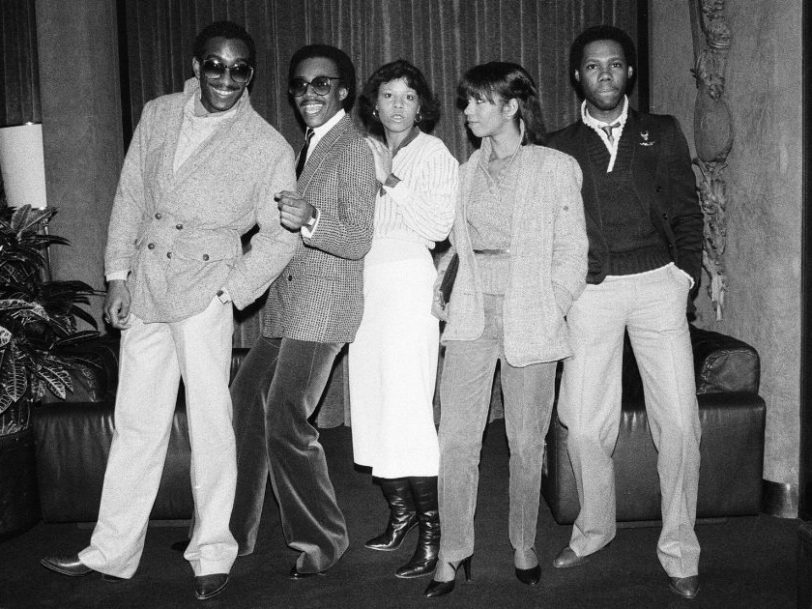Released in September 1977, Chic’s debut single, Dance, Dance, Dance (Yowsah, Yowsah, Yowsah), was tailor-made for discotheques. Armed with a groove to get feet moving, and self-produced with an ear for club-goers’ innermost desires (with enchanting vocals from soul diva Norma Jean Wright), the song was immediately enjoyed for its impeccable R&B brio, but came loaded with lyrical subtext, exemplifying what Chic mainman Nile Rodgers would call the group’s commitment to “DHM” (deep hidden meanings).
At the time, it might have been easy for critics to sneer at the popularity of disco – raising a collective eyebrow at the perceived superficiality of its more novelty songs – but Dance, Dance, Dance (Yowsah, Yowsah, Yowsah) transcended such cynicism, not just by the force of its musicality but also its socially-charged undertones. Here, then, is the story of how the song came into being, thanks to a little bit of jamming from bass player Bernard Edwards and a spot of late-night TV consumption from guitarist Nile Rodgers.
Listen to the best of Chic here.
“Dance, Dance, Dance was all about the Great Depression”
One evening, Nile Rodgers found himself sitting in front of the television watching a screening of the 1969 movie They Shoot Horses, Don’t They? Directed by Sydney Pollack, it was set in the 1930s, following the Wall Street Crash, and told the story of aspiring film director Robert Syverton (Michael Sarrazin), who stumbles across a never-ending series of brutal dance marathons in which contestants vie for a $1,500 prize. Rodgers later commented on how the movie was “all about how the poorest people in America could use dancing – even though it was almost slave-like – just to make $500, which was more than they could make in a year. People died during those dance marathons.”
The seed of a lyrical idea was planted in the guitarist’s brain. And when he heard an instrumental Bernard Edwards had been cooking up in the studio with composer Kenny Lehman – touted as a potential B-side – the immediacy of its locomotive groove instantly set Rodgers’ mind racing. Knowing that dancing had made a raging comeback thanks to the rise in popularity of disco, Rodgers began to finesse the lyrics. “He’s got this whole song with the exception of the ‘Rumba, el tango’ section,” Rodgers later recalled. “I added that because I was reflecting the dance scene, wanting to talk about my life, too.”
Given that the US was itself undergoing a prolonged period of economic recession in the 70s, the incessant chant of “Dance, dance, dance!” was intended to evoke the unrelenting dance marathons Rodgers had seen in They Shoot Horses, Don’t They? “Dance, Dance, Dance was all about the Great Depression,” Rodgers said. Having intended to mirror the then current trend for club-based escapism with a sly social comment on the desperate lengths people go to in difficult times, he added, “Human suffering has always been used as a form of entertainment. Go back to the Colosseum, marathons, and people going to watch people die in a dance marathon.”




